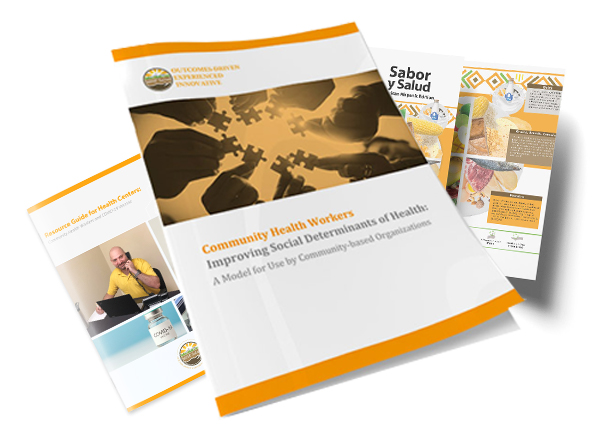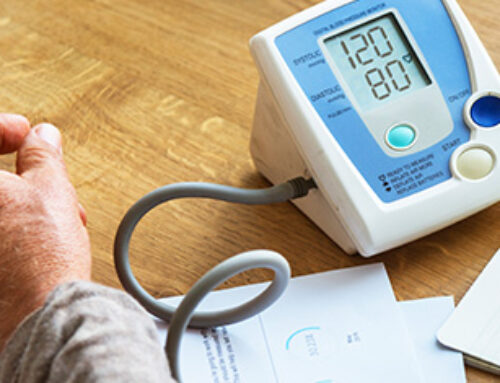Serving Agricultural Workers through Community Health Worker Interventions and SMART Goal Setting
Published June 2023 | Back to all news and updates.
- Many farmworkers have limited English proficiency, which can make access to and understanding healthcare in the US difficult.
- Community Health Workers play a valuable role in helping farmworkers manage their diabetes by providing appropriate health education.
- CHWs can help farmworkers with SMART goal setting, which is a tool that is a widely recognized method for setting and achieving goals.
Barriers to Diabetes Management
Agricultural workers in the United States often move to different areas of the country to follow the growing season. They often live at or below the poverty line and have limited access to healthcare and other services. Some also have limited English proficiency, which can make access to and understanding healthcare in the US difficult. Farmworkers may face other challenges including finding stable and affordable housing, access to health insurance coverage, and limited access to transportation, all of which can further limit their ability to access healthcare and other services and therefore make managing a chronic condition like diabetes extremely difficult.
Setting SMART Goals for Diabetes Management
Diabetes is a significant health issue for individuals in the United States, and it is important to take steps to prevent or manage the disease. This may include making healthy lifestyle choices, such as eating a healthy diet and exercising regularly, and seeking medical care and support as needed.
SMART goal setting is a widely recognized method for setting and achieving goals. The acronym stands for Specific, Measurable, Attainable, Relevant, and Time-bound. Setting SMART goals can be especially helpful for farmworkers who often have limited time and resources to manage their diabetes. When defining and setting SMART goals for diabetes management, it is important to consider the individual’s specific needs and challenges. Some tips include making the goals attainable:
- Specific: Clearly define what you want to achieve.
- Measurable: Determine how you will track your progress.
- Attainable: Ensure that the goal is realistic and achievable given your current circumstances.
- Relevant: Make sure the goal is meaningful and relevant to your overall health and well-being.
- Time-bound: Set a specific timeframe for achieving the goal.
By setting SMART goals and tracking their progress, farmworkers can work toward changing their health behaviors, improving their diabetes management, and reducing the risk of diabetes complications. It is important to involve a healthcare team, including a primary care provider and a diabetes educator, in the goal-setting process to ensure that goals are realistic and achievable. Here is an example of how setting up a medical home using SMART goals can support comprehensive, coordinated, and continuous care in diabetes management:
Irene, a local CHW has scheduled a home visit with Martha to talk about the importance of taking her diabetes medications. Martha would like to focus on taking them as prescribed with meals, and they both decide to set up a SMART goal: “Martha will take all her diabetes medications as prescribed with meals every day for the next week.” To make this goal possible, Irene has helped Martha set up reminders on her phone and will check in with her to track her progress. At the end of the week, Irene and Martha will get together to review progress and make any necessary adjustments to her plan.
Martha has set a measurable and attainable goal. She will have reminders set on her phone and check-ins with the CHW. In the end, they will review Martha’s progress and make any changes needed to stay on track of her goal.
How Can Community Health Workers Help Agricultural Workers Manage Diabetes?
Community Health Workers (CHWs) are trained professionals who work to improve the health and well-being of the communities they serve. They are trusted members of the community with a unique understanding of the challenges and needs of the community and can connect individuals with the resources and support they need to improve their health. CHWs can play a valuable role in helping community members manage their diabetes.
CHWs can provide health education on topics such as diabetes self-management, healthy lifestyle choices, and accessing healthcare services. They can help individuals access resources such as healthcare services, diabetes self-management supplies, and healthy food options through referrals and application assistance. CHWs can work with individuals to define and set SMART goals for diabetes management that are specific to their unique needs, help them track their progress, and provide ongoing support and encouragement.
By connecting agricultural workers with resources, assisting with goal setting, and providing support and education, CHWs can help them effectively manage their diabetes and improve their overall health and well-being.
Learn More About SMART Goals and Diabetes Management
These publications aim to provide general information on diabetes management and SMART goal-setting strategies to help improve health outcomes. Visit our website to download our free guides.
HRSA Disclaimer
This publication is supported by the Health Resources and Services Administration (HRSA) of the U.S. Department of Health and Human Services (HHS) as part of an award totaling $678,959.00 with 0 percentage financed with nongovernmental sources. The contents are those of the author(s) and do not necessarily represent the official views of, nor an endorsement, by HRSA, HHS or the U.S. Government. For more information, please visitwww.HRSA.gov








